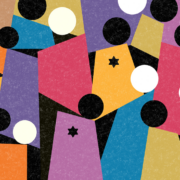Voice, Vote, Veto
As Toronto has gone to the polls this week, I thought I would share something that is both election adjacent and completely apolitical.
Ask yourself this question, “In my life does Judaism have a voice, a vote, or a veto?” But before you answer, allow me to define those terms in this context.
A voice. A voice is one among many. Sometimes it is a feeling, an emotion, or an idea. Something which is shared regularly but here has little authority. There are voices in our lives all day long telling us how to think and feel. There are certainly voices in our lives that WANT to be louder, and more important than they are, but at the end of the day, they are just voices. We listen if we want to. A sign that says “SALE!”, when it’s something we want to buy, can be a very convincing voice. We might be subtly influenced, especially if the voice is telling us something we already believe. And a voice may speak to us at one point in our lives but be completely missing at another stage.
A vote. A vote has weight. A vote can make binding decisions for you. It is in competition and collaboration with other major values. A vote changes the way that you live and builds up long-lasting decisions. It can be outweighed, it can certainly lose out to other values, but it will always return the next time a major decision needs to be made. A vote is part of the living core of who you are.
And then there is the veto. The veto stands absolute. If the veto says no to an idea, an option, or an opportunity…that thing will simply never happen in your life. It is a constant check to each action.
The earliest Reform Jews argued that when it came to moral decisions, Judaism and Jewish tradition would retain a veto in their lives. The Torah says, “Do not steal! Do not kill! Do not lie!” and these sorts of things are not – and never would be – up for debate. But other elements of Jewish law, like Kashrut, personal dress, Shabbat observance, and more- these things were ritual laws. Regarding ritual laws, the earlier Reformers argued that it would be up to each individual person to determine whether they would obey them as law (veto), be influenced by them in conversation with other values (vote), or simply be one option among many others when making decisions. Naturally, other branches of Judaism drew their limits in other ways and other places, which has led to the varied levels of Jewish observance we observe today in modernity.
So let me return to that initial question… while at the same time sharpening it just a bit. Instead of asking an absolute “Which one do you fit into?”, I’d like to ask where. Where does Judaism have a veto in your life? And where does it have a vote? And where is it a voice?
And if the answer to any of that surprised you… what would make it change?
Having a complex modern identity, where we are not ‘only one thing’ but in fact, composed of many competing values, is not a strange or foreign idea to us. We balance our national identities, our political beliefs, our family roles, and our personal values all the time.
This is just a gentle reminder that our Jewish identity is also one that needs to be included in that ongoing calculus!










